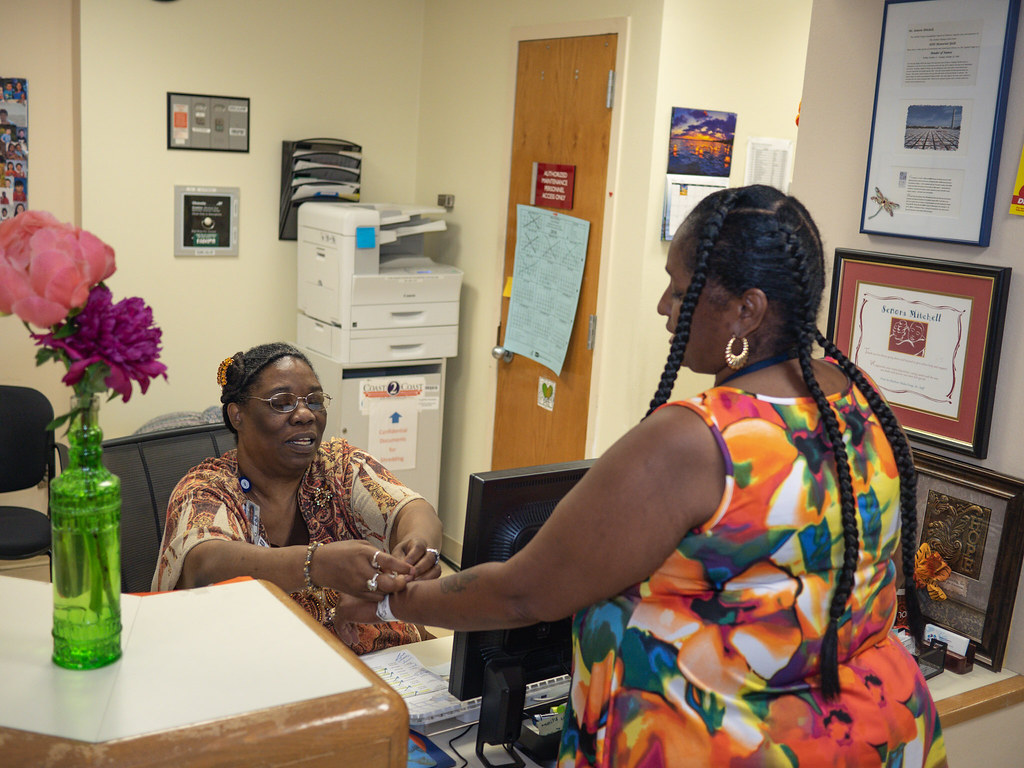Liz Cooke, of G&D’s editorial team, introduces the March 2021 Health issue of the journal.
There could scarcely be a more fitting time to be launching this latest issue of Gender & Development, which is focusing on health.
As we were commissioning the issue this time last year, it was becoming clear that the COVID-19 outbreak – declared an international public health emergency by the World Health Organization on 30 January 2020 – was not going to be a short-lived affair. Twelve months on, and over two and a half million deaths (and rising) later, the world is still reeling from the effects of this global pandemic. Loved ones have been lost, livelihoods destroyed and while the newly-developed vaccines offer hope, the end is still not in sight.
Unsurprisingly, the pandemic has thrown inequalities of all kinds into sharp relief. While vaccination programmes are being rolled out in the global North, concerns over access to vaccines for those in lower-income countries are growing. Gender disparities are also plain. While evidence points to COVID-19 having worse health outcomes for males, it is apparent that for women, the pandemic is serving to reinforce existing gender inequality, and roll back previous gains for women’s rights.
Although we’d decided to devote an issue of Gender & Development to the subject of health long before COVID-19 was even identified, this issue of the journal nonetheless reflects the impact the pandemic is having. It includes four articles on COVID-19, which consider the effects of coronavirus in very different contexts. In their article, Right to health, right to Live, Louisa Acciari, Juana del Carmen Britez and Andrea del Carmen Morales explore the ways that COVID-19 is affecting the lives of domestic workers in Latin America. The increased level of violence against women and girls seen during the past year has been termed a ‘shadow pandemic’. The article from Neetu John, Charlotte Roy, Mary Mwangi, Neha Raval and Terry McGovern assesses the consequences of the pandemic for hard-to-reach women and girls and their access to Gender-based Violence services in Kenya. And in ‘No one understands what we go through’, Ravikant Kisana and Nioshi Shah explore how women sanitation workers in Pune, India, identify the risks to their health posed by the COVID-19 pandemic. In our final article on the pandemic, Sarine Karajerjian moves the focus to mental health. She explores the challenges faced by Syrian women in Lebanon, who having already suffered the trauma of violence and displacement, are now having to cope with the effects of COVID-19.
Looking beyond COVID-19 to the field of health more broadly, the application of a gender lens reveals -and helps explain – many disparities. The gender inequality and discrimination experienced by women and girls means that they often face greater barriers to health information and care – including sexual and reproductive health services – than men and boys, resulting in worse health outcomes for them. However, harmful gender norms also affect men. Behaviours relating to so-called toxic masculinity can lead men and boys to, for example, smoke and drink more, engage more in risky sexual behaviour and fail to seek help for health problems. And for those people with diverse gender identities, the violence and prejudice they so often encounter, places them at higher risk of HIV and suicide.
However, as all the articles in this issue of Gender & Development show, gender inequality is only part of the picture.
As well as our biological sex, our gender identity and sexuality, where we live in the world, our race, socio-economic status, age, caste, religion, and more, all affect whether we will experience good (or bad) health, and have access to effective treatment and care when we need it. The importance for our health of these overlapping or, intersecting, aspects of our identity is increasingly being acknowledged. While developments in medical science have been and continue to be of crucial importance (with the caveat that these developments can come with inbuilt sexual, gender and racial prejudice and discrimination), we need the social and economic factors that shape our lives to be recognised as central elements in determining our health and well-being. Feminists in the health sector are advocating for an intersectional feminist understanding of what influences our health. In this issue of Gender & Development, for example, Debjani Barman and Manasee Mishra ask, in their article on ageing women in the Indian Sundarbans, ask how is eye care seeking affected by intersectional experiences? And as part of this intersectional approach, at the global level, there must be a recognition of the history that has led to the gross health inequalities between the global North and the global South we see today. This history continues to shape the global health system. Calls are growing, therefore, for a decolonisation of global health. Claire Somerville and Khatia Munguambe’s article, The rise of non-communicable disease (NCDs) in Mozambique: decolonising gender and global health addresses this issue.
For every one of us to enjoy the best possible health, and the best possible health care, will take much work. That work needs to be informed by a real appreciation of the sometimes complex interplay of factors that affect our health and wellbeing. Only by shining a light on everything that contributes to good and bad health will we achieve better health for all.
We hope that this issue of Gender & Development, with its articles from a diverse group of feminists, researchers and practitioners, covering a wide range of health issues and contexts, will help towards this goal.
And as COVID-19 continues to underscore and exacerbate existing inequalities of all kinds around the world, we hope, along with so many others, to see a better, fairer future once the pandemic has subsided.

